Note: I said “clean,” not “disinfected.”
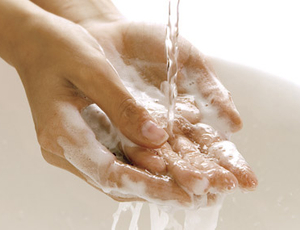
“Disinfected” implies you’re going to try to kill germs outright to try to stay safe – a losing proposition since there are so many germs in so many places, you’ll never be able to win out.
Besides, “Germs are essential for human life. Bacteria in our mouths and intestines help us to digest the food we eat and bacteria on our skin protect us from invading viruses and bad bacteria,” explains Dr. Edith Blondel-Hill, and an infectious diseases specialist at British Columbia Children’s Hospital.
What about bacteria and viruses, like the one that is causing swine flu? It turns out that bacteria and viruses are examples of two different types of germs. Bacteria exist virtually everywhere in our environment and make up 60 per cent of the living matter on earth. Of the billions of types of bacteria, only about 50 are known to cause infection.
Viruses cause far more illnesses than bad bacteria because they spread more easily. If more than one person in your family has the same sickness, says the Health Agency, odds are it is a viral infection.
Especially in response to concerns like the swine flu epidemic, consumers have a tendency to rush to buy antibacterial soaps and cleaning products. Yet there is no medical research to prove that antibacterial soaps offer any benefit over regular soaps in preventing common illnesses. In fact, many doctors worry that the widespread use of antibacterials is causing antibiotic resistance. In other words, the more antibacterial products you use, the more susceptible to disease you may become.
Plus, antibacterials like triclosan are believed to be causing deformities in frogs and other wildlife, since they get washed down the drain and out into rivers, lakes and streams where they impact the animals living there.
In a March 2004 study published in the Annals of Internal Medicine, researchers studied 238 households in New York City. Half were given regular hand soap and cleaners and half were given antibacterial soaps and cleaning products. At the end of 48 weeks, there was essentially no difference between the two groups in reported infectious disease symptoms, including runny nose, cough, sore throat, vomiting and diarrhea.
Make no mistake: if you want to stay healthy, you must wash your hands. Just skip the “disinfecting” products. Here are the Health Agency of Canada’s recommendations for effective washing.
1) Remove all rings and wet your hands with warm running water.
2) Put a small amount of liquid soap in the palm of one hand. Bar soaps are not as hygienic as liquid soaps because they stay moist and attract germs. If a bar soap is the only option it should be stored on a rack so that the bar doesn’t sit in water.
3) Rub your hands together for 20 seconds so you produce lather. Make sure you scrub between your fingers, under your fingernails and the backs of your hands.
4) Rinse your hands well with clean running water for at least 10 seconds. Try not to handle the faucets once your hands are clean. Use a clean towel to turn off the water.
5) Dry your hands with a clean towel. During cold and flu season you may want to give each family member his or her own hand towel.
6) Use hand lotion to put moisture back into your skin if your hands are dry.
7) Model good handwashing technique to your children. Have them sing a song like “Twinkle Twinkle Little Star” while rubbing their hands together to teach them the amount of time it takes to clean their hands properly.
8) Wash your hands regularly.
9) Keep your hands away from your eyes, nose and mouth if you haven’t washed them recently.
10) At work, when shopping or in transit, use alcohol-based wipes rather than antibacterial wipes if you don’t have access to water. But use sparingly, since alcohol kills good and bad germs.



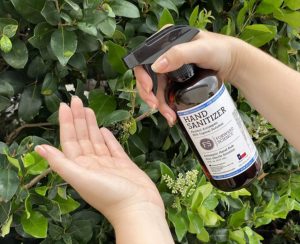
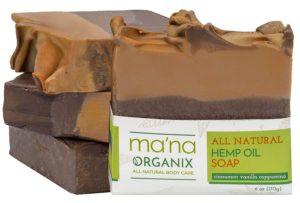
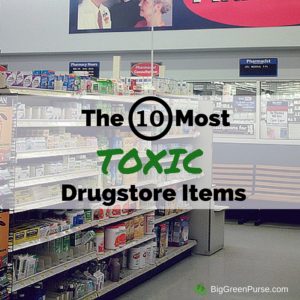

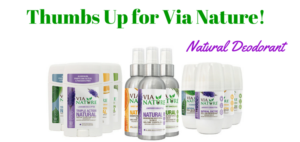









6 thoughts on “What’s the best way to keep your hands clean?”
I just found this video on You Tube that really shows how germs and viruses spread. It is so cool. It’s meant for kids but I even learned a lot!
http://www.youtube.com/watch?v=56mq1t1BqfY
remove all rings?! ruh roh…
It may be important to make a distinction between antibacterial soaps and the alcohol-based hand gels. Many hospitals credit these gels as making a huge difference in stopping acquired infections in hospitals These gels are not as bad for the environment and there is no evidence that they encourage resistant organisms.
Andy Greene
GreenRednecks.com
Green Living Tips for Rednecks
Yes, alcohol-based gels are preferable to antibacterial soaps. Thanks.
Actually, according to the lastest research, it’s the rubbing that kills the nasty little organisms. If you can rub for 30 seconds and then rinse with water, good; no water? rubbing for 30 seconds – palms, backs of hands, between fingers, will work.
Thanks for passing this on!
Comments are closed.